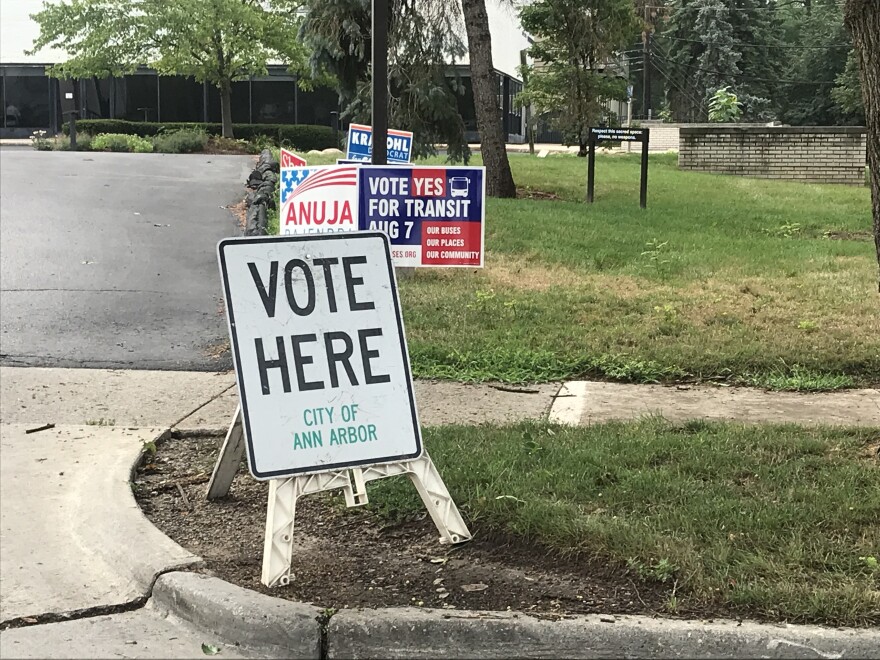Update, November 7, 2018:
Voting in Michigan is about to get much easier, after voters passed Proposal 3 on November 6. Read our article about what the proposal will do below.
Original post:
Along with the legalization of recreational marijuana use and efforts to end gerrymandering, Michigan voters will see a proposal thats aims to making voting easier on their ballot this November.
The initiative is led by Promote the Vote, which itself is backed by the ACLU, the Michigan State NAACP, and the League of Women Voters of Michigan. Other notable figures who offered their support are Detroit Mayor Mike Duggan and University of Michigan Regent Denise Ilitch.
There are eight policies outlined in Proposal 3, including the automatic registration of voters once they get their license or ID card from the Secretary of State (although an individual could opt out of this). Taking a cue from nine other states with this law, arguments for the policy say it allows high registration rates and fewer costs to print out voter forms.
According to the Center of American Progress, Michigan has a C when to comes to election security. While the report considers the state’s registration and cybersecurity to be fair, it criticized the ballot reconciliation process and post-election audits because “the (post-election voting) review does not compare ballot totals in a meaningful way.”
Michigan is also considered one of the most gerrymandered statesin the country. That, paired with local ballot counting failures and missing votes, causes advocates to believe many eligible Michigan residents are forgotten in the election process.
Here are five things the voting rights initiative proposal would change:
1. The ability to vote secret ballot
Many think the voting process is private, but that’s actually not the case.
(Quick history lesson: Derived from Australian law, the right to a secret ballot was slowly passed state by state since 1888. In the beginning, the motivation behind the secret ballot was primarily to prevent intimidation of immigrant voters who might be coerced to voting for a certain candidate.)
There have been several instances where the federal government could request voter data. This past summer, an unidentified group filed the largest federal information request the state’s ever received to see all 2016 presidential ballots in Michigan, leaving some clerks wary as to what it will be used for.
Amending the Michigan Constitution to ensure a secret ballot would keep the knowledge of who residents voted for tightly locked up.
2. The ability to vote straight-party on all partisan general election ballots.
Straight-party ticketing allows voters to make a single mark on their ballots to indicate their support for all candidates in whatever party they choose.
Michigan’s relationship to the practice is a little complicated: In the 2016 presidential elections, the U.S. Supreme Court ordered Michigan to block Governor Rick Snyder’s ban on straight-ticket voting. However, for this election, Michigan has effectively eliminated the practice — Secretary of State Ruth Johnson said the ban allows people to make conscious decisions on who they are selecting rather than just the party.
But here’s the argument: U.S. District Judge Gershwin Drain said the law was unconstitutional, as it ignores how black majority population usually tend to vote straight-party. He added the ban’s logic was just speculation and makes people take a longer time to vote.
There is now fear that the wait times for voting in bigger cities like Flint or Detroit will be even longer, making it harder for those with time-constraints to stick around. In Detroit, the wait for voting can last from one to three hours— some of the highest in the country.
Eight states currently allow straight-ticket voting.
3. The ability to register to vote by mail on or before the 15th day before an election and the ability to register with proof of residency, including on Election Day.
Proposal 3 also asks Michigan move up the registration date to 15 days instead of 30 days. Right now, only 14 states enforce the 30 day requirement.
However, in fear of voter purging, these policies also ask that residents still have the chance for same-day registration. 13 states and D.C. allow this practice.
While it has been difficult to conclude on how much higher, research concludes that the turnout rate has increased. Studies have also yet to find out if this is affecting any certain population, like young voters.
4.The ability to vote an absentee ballot, by mail or in person, without giving a reason.
Michigan currently allows six reasons as to why a resident under 60 would have the ability to vote through an absentee ballot. Most of these requirements gear towards senior voters but also take in account for traveling and religious holidays.
37 states and D.C. allow voters to cast their ballot this way without these requirements. Promote the Vote argues that working parents, rural votes, and other residents with time-constraints could benefit from this policy.
5. The ability to have election results audited to ensure the accuracy of elections.
While Michigan was not one of the states involved with the reported Russia hacking, the state will now hand-count their ballots. But some experts, such as Liz Kennedy from the Center of American Progress, say a mandatory audit would be a valuable practice.
A post-election audit is the review of voting equipment and processes in order to make sure they were working properly during the election. Michigan already has a version of this with randomly selected counties. The state also does it automatically when there is a close margin of victory.
After the 2016 election, Detroit ran an audit after realizing the votes they had were not the same as the amount of those registered. The investigation concluded that the extra counts occurred due to human error interacting with the voting machines.
Proposal 3 also includes sending military and oversea voters a ballot 45 days before election so their votes are counted in time.
The 2018 election is Tuesday, November 6.






